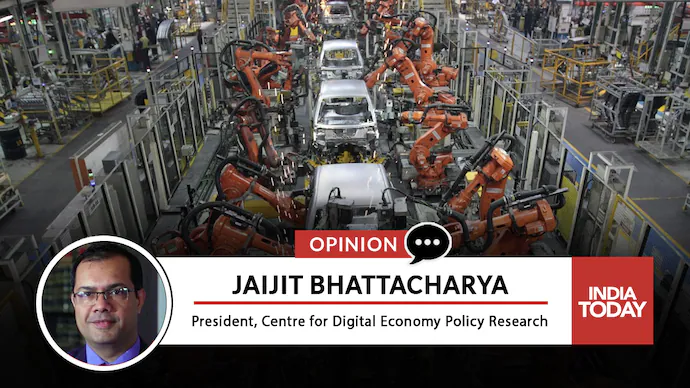
By Dr. Jaijit Bhattacharya
America withdrew from Afghanistan at the end of August this year. It was a military withdrawal. Perhaps it was done to conserve military and economic resources for being able to take on a much larger adversary that has become a challenger to Pax Americana. So, perhaps it was a strategic withdrawal to take China, the ‘Frankenstein’ that America had helped create. The withdrawal does not really reflect the USA’s military and economic might.
However, what should be a worrisome development from a US perspective is its almost complete withdrawal from the Indian automobile market, which is the fourth largest car market in the world. The Indian automobile market is also poised to become the third-largest automobile market in the world by 2026.
With Ford’s dramatic withdrawal from India last month, except for Jeep (partly owned by Chrysler which is an American automobile manufacturer), there are no American automobile players left in the country. This also comes on the back of Ford shutting down plants in Europe last year, which gives a sense of a general withdrawal of the great American automobile giants.
In fact, in two of the biggest automobile markets in the world, India and China, US automakers appear to be on the back foot. And it is not just car manufacturers, but also motorcycle manufacturers such as Harley-Davidson and UM Motorcycles that have also shut shop in India, while their joint ventures in China appear to be a route to provide intellectual properties to their Chinese rivals.
So, why should the withdrawal from India’s automobile industry be a matter of concern for America? After all, companies like Tesla are poised to become global leaders in the next generation of automobile technology, i.e. electric vehicles.
The answer to that question lies in the fact that the automobile industry is one of the largest in any economy and is a good indicator of the industrial prowess of a nation. The automobile economy generally accounts for around 20 per cent of the total GDP of a country. Therefore, withdrawing from 20 per cent of one of the fastest-growing large economies should raise alarm bells.
Even Chinese companies such as Morris Garages (MG, a subsidiary of Shanghai Automotive Industry Corporation of SAIC) that had earlier made multiple attempts to enter the Indian market through tie-ups with the American automobile company General Motors, have been able to enter India under its MG brand and has gained a significant foothold in the country, while General Motors closed down its operations in India.
American automobile companies like Harley-Davidson entered India on the back of intense support and lobbying from their government. It may be noted that Indian mangoes were allowed to be imported into the USA only in exchange for the noisy, polluting Harley-Davidsons being allowed import entry into India. In fact, Harley-Davidson became the poster-boy of President Trump’s tirade against India’s trade policies and was touted as a major trade win of President Trump.
Unfortunately, Harley-Davidson or any of the other American automakers have not been able to survive in the intensely competitive Indian auto market, where even recent entrants such as Korea’s Kia Motors have been able to make a mark for themselves.
Globally, Honda pushed out General Motors from the list of top 5 automobile manufacturers, and Shanghai Automotive Industry Corporation (SAIC) is gnawing at even the number 6 rank of General Motors. The American automobile industry appears to be on the retreat.
Even in the electric vehicles market, in spite of taking a global leadership — thanks to companies such as Tesla — American Electric Vehicles have still not been able to enter the Indian market. We did see some interesting tweets from Mahindra & Mahindra’s Anand Mahindra to Tesla’s Elon Musk, inviting him to set up shop in India, otherwise, Mahindras will have the market to themselves.
However, Tesla has still not been able to sell a single car in India despite taking bookings for one of its models a few years ago. Tesla appears to be close to entering the Indian market, but it clearly now has serious competition from Indian manufacturers at the lower-end segment, from Korean and Chinese manufacturers in the mid-range and from German luxury car manufacturers in the high-end vehicles segment.
The fact that the American auto industry could not compete with the Indian, Chinese, Korean, Japanese and German auto manufacturers is a significant indicator of the waning prowess of the American industry. With the renewed US focus on manufacturing and its bipartisan support for regaining leadership in critical areas such as semiconductors, perhaps the USA may quickly regain the lost momentum. Otherwise, the withdrawal from the Indian auto market may just be a precursor to the withdrawal of US industrial players from other sectors and segments.
This article first appeared in India Today, https://www.indiatoday.in/opinion-columns/story/why-us-automakers-withdrawal-from-indian-market-rings-alarm-bells-opinion-1861068-2021-10-05